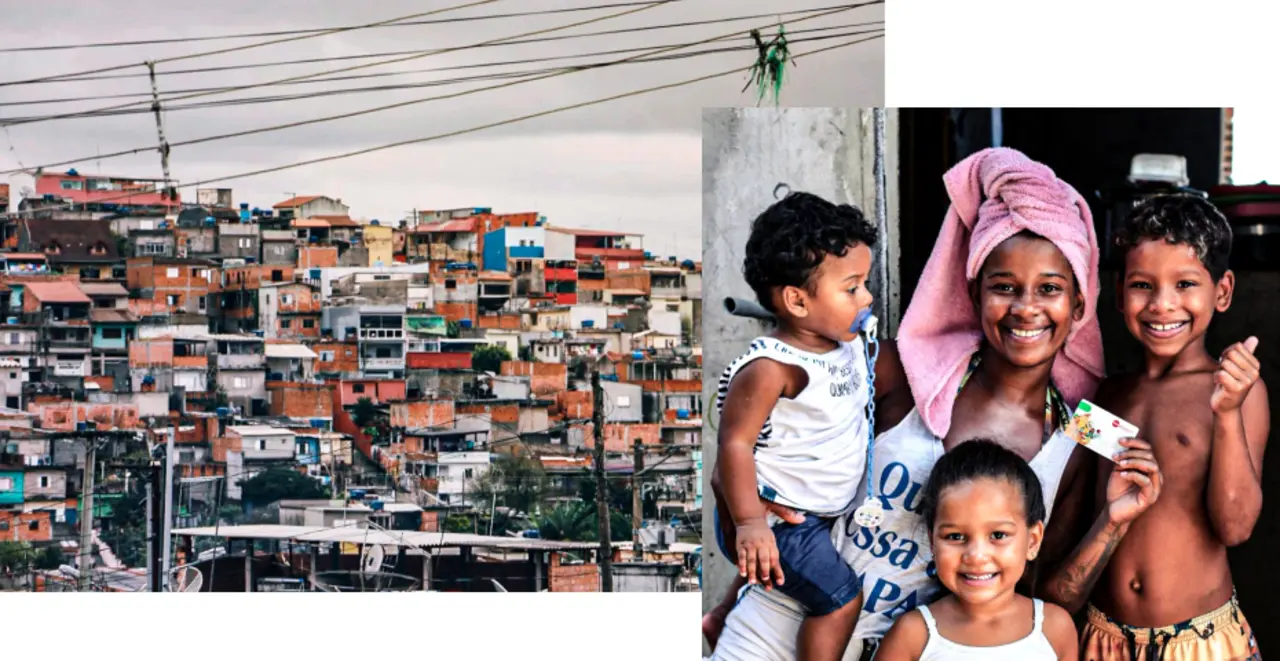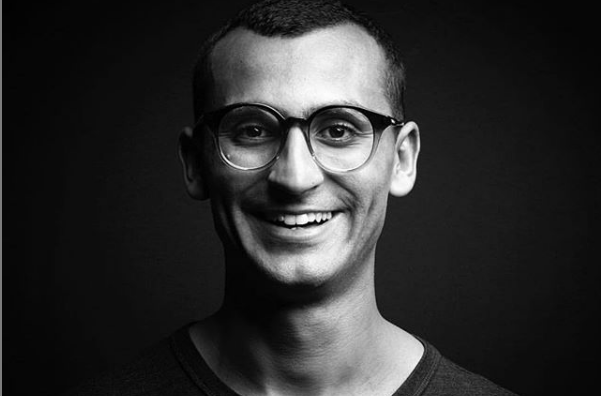
“I had to invent in the slums. We had no food, we had to invent a path. We had no TV, we had to invent to see cartoons. Every day we were imagining new things. So, what did poverty do for me? It made me an inventor.”
It was with these thought-provoking words that Edu Lyra shared his experience as co-founder of Gerando Falcões, a Brazil-based nonprofit organisation that aims to eradicate poverty in the country and currently operates in 5,500+ favelas (slums), reaching 700,000+ people in 2022. Hosted by the Brazilian INSEAD Alumni Association alongside the INDEVOR club with the participation of Katell Le Goulven, Executive Director of the Hoffmann Global Institute for Business and Society at INSEAD, and Rafael Breviglieri (MBA 19’D), INDEVOR Brazil leader, this webinar shone the spotlight on the promising case of Edu Lyra’s nonprofit organisation that is tackling poverty by leveraging solid management tools and technology. Edu Lyra grew up in a favela in Guarulhos, a city in the metropolitan area of Sao Paulo, Brazil. With this unique proximity to the socioeconomic and environmental issues that challenge over 16 million people living in favelas in Brazil (that’s 6% of the country’s population), Edu Lyra co-founded Gerando Falcões in 2011 and is today one of Brazil’s most prominent impact entrepreneurs.
Gerando Falcões runs multiple programs in favelas, such as Favela 3D – “3D” stands for Dignified, Developed & Digitalized. Through tiered interventions in housing, healthcare, income generation, childhood development, education and culture and other areas, the program aims to lift up communities sustainably and break the poverty cycle for local families. Favela 3D is in pilot phase in 5 favelas and the organisation is transparent in sharing lessons learned in this early implementation phase, as seen in this detailed report. The program takes a holistic approach to tackling poverty, as it understands it as a multidimensional issue, with strong involvement of community leaders in the design and implementation of the organisation’s interventions.

Gerando Falcões has expanded its reach from the metropolitan area of São Paulo to 25 out of the 27 states of Brazil, reaching 42% of all favelas in the country and operating with a budget of over R$110M (~US$22M), according to its 2022 Impact Report. In 2022, Gerando Falcões joined the select group of recipients of MacKenzie Scott grant, with an unrestricted donation of R$27M (~US$5.4M). As we learned during the conversation, these results were achieved, through a few key elements of the organisation’s model.
Mobilising and deploying resources from the private sector: Gerando Falcões fundraised numbers unparalleled in Brazil, with one of the largest budgets in the country. Gerando Falcões systematically mobilises companies as implementation partners in their programs and enlists business leaders as active contributors to the organization’s strategy.
Exporting successful models to public policy: Recognising the role of the government in scaling social solutions, Gerando Falcões recently partnered with the state government of São Paulo to incorporate successful elements of the organisation’s program - ‘Favela 3D’ – into state-wide development policies for impoverished communities.
Empowering the community and local leaders: Every time a new program is deployed in a favela, Gerando Falcões meets with local community leaders to better understand the specificities of the area and which adaptations are required to create successful interventions. The organisation also offers leadership development programs for community leaders and acceleration programs for local nonprofits.
Strong orientation for results and transparency: All programs are rich in KPIs that are shared with all relevant stakeholders, including community leaders where programs are being deployed.

Listening to Edu Lyra talk at this webinar provided insights into his leadership skills and his ability to scale the organisation to become a complex system of hundreds of employees and over a thousand volunteers. Here are the leadership elements that stood out:
Ability to navigate a diverse set of networks: Edu Lyra often speaks of his role as a connector between Faria Lima (the epicentre of Brazil’s financial institutions) and the favela. He is as skilled in navigating the New York finance scene as being able to connect with local leaders in communities Gerando Falcões serves. He has also enlisted support from local business leaders. Some of Brazil's most successful entrepreneurs, such as Jorge Paulo Lemann, Eli Horn and Guilherme Benchimol sit on the organisation’s board and are active in their support of the organization.
Proximity: Born and raised in a favela, Edu Lyra has first-hand experience with many of the challenges of the communities he serves. He has effectively become a voice of the favelas in Brazil and his words now resonate throughout the country. Although he does not live in a favela anymore, he intentionally spends a few days living in some of the favelas that will receive key programs to better grasp the local challenges and potential for success. Lyra can speak authentically with captivating energy and ambition.
Gerando Falcões is a great example of a nonprofit organisation operating at scale and in close collaboration with the private and public sectors to tackle complex socioeconomic issues. The challenges are many, but the organisation seems to be on the path to delivering sustainable change in the communities it serves.
The webinar ‘Using Tech to Eradicate Poverty: The 3D (Dignity, Development & Digital) Approach That’s Working in Brazil’s Favelas’ held on July 6th 2023 organised by the INSEAD INDEVOR club, INSEAD IAA Brazil and the Hoffmann Institute for Business and Society can be viewed here.
Written by Rafael Breviglieri (MBA 19’D) INDEVOR club Brazil leader.
- For more information on INSEAD Brazil NAA, see here
- For more information on Indevor, see here
- For more information on scaling the impact of social enterprises from the Hoffmann Institute, listen to season 3 of the Hoffmann Institute Mission to Change podcast series
- For more information more about Gerando Falcões see here
Subscribe to our Hoffmann Institute Quarterly Newsletter
Stay informed on our 60 second quarterly video updates, stories, video recordings of our webinars, and details of upcoming events and much more.
